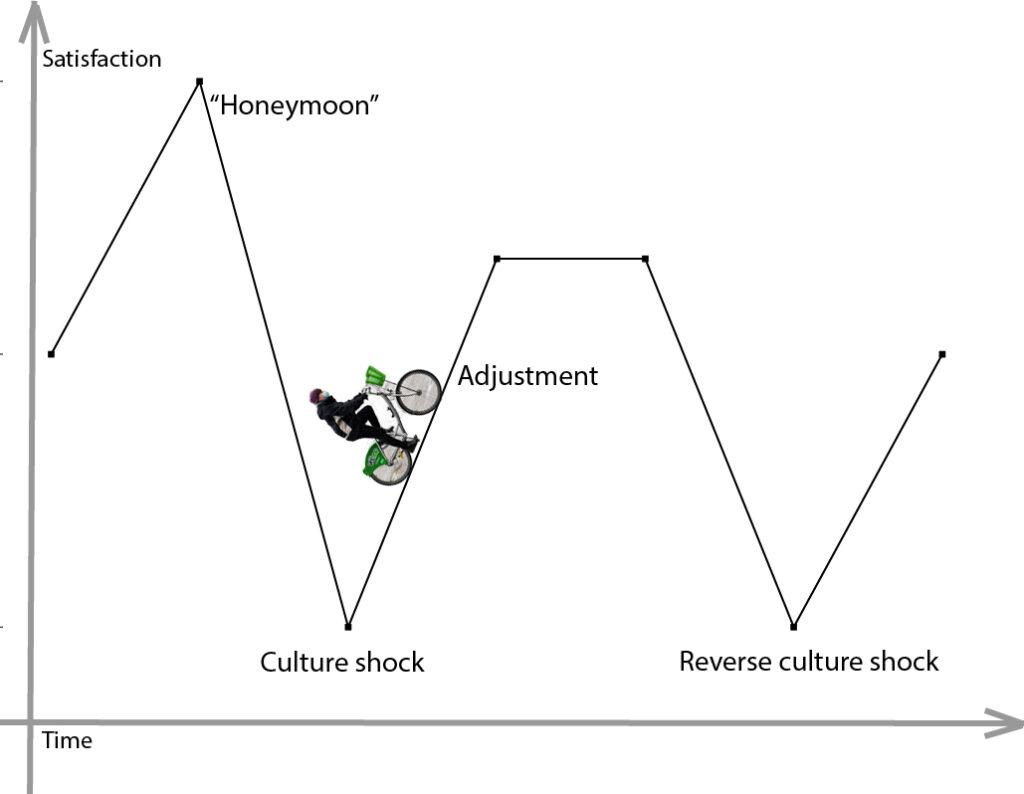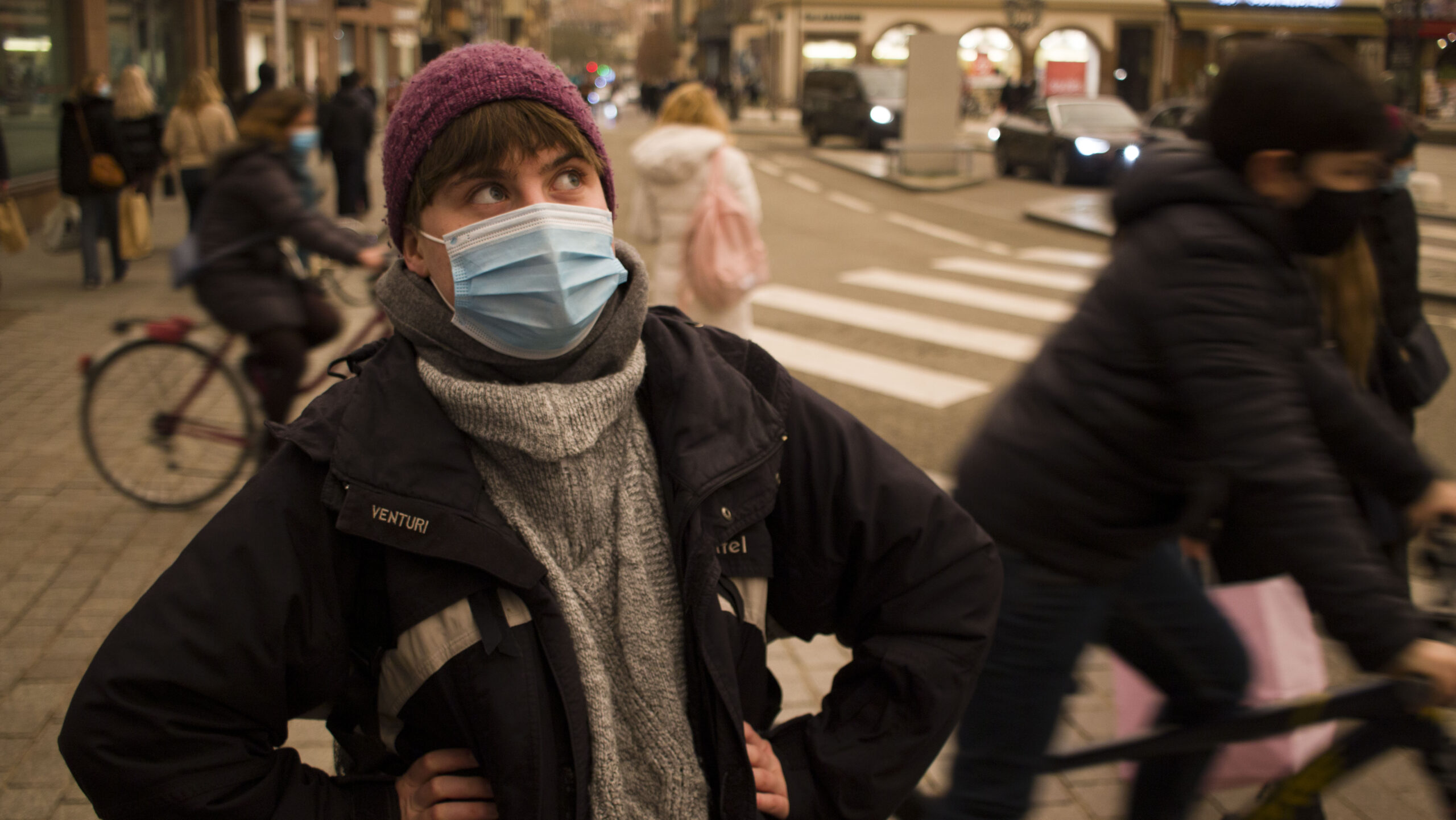After you lived through it you forget it : the culture shock. But it still exists, and it makes life abroad, an internship or an exchange semester harder – especially after the first few weeks.
Normally, the exchange period starts with the „honeymoon“-phase: you are very excited, everything is new, everything is awesome! Then, after two or three weeks, the rose-coloured glasses vanish, and you will start noticing the bad things about the new culture. You will miss your home and just the „normal“ things that you usually have around you. And you will probably get your first negative impressions for example due to the language you’ve been learning for so long and suddenly have to speak every day now.
This phenomenon is called a culture shock. And it hit me hard this time. In my exchange year in Russia, I also experienced a culture shock in the beginning, which I forgot about because as soon as it is gone you really live your best life. This time it is a bit different for me though: I am not in a culture I grew up with, I do not live in a dormitory surrounded only by exchange students who experience the same situation as me and I am not doing what I already did for the last three years – which is studying.
Also, there is a pandemic going on. So, the normal tips and tricks that are used to overcome a culture shock like going to museums, finding a new favourite café, going to festivals and meeting new people became very hard or even impossible in January and February of 2021 in France.
Let me tell you, COVID really does not make it easier to cope with the culture shock.
The saddest part probably is that I get to know the worst parts about a country the best – like an indecisive government that does not know how to deal with an ongoing pandemic. Not that any government in Europe seems to know – still it is really annoying not to know what life will be like the next day. Will we have a hard lockdown (confinement) with maximum one hour outside your house or will we have a curfew on weekends as well? We don’t know – the French government does not either.
As soon as I arrived in France, I got to know the French politicians, who are scared of their own people because French people like to demonstrate at any chance. I got to know the French’s love of complaining about anything very well (am I actually doing that myself right now?), and I really got to see a lot of police presence in the streets. The 100000 “euuuuuuh”s in a French native speaker’s sentence and the dog poop everywhere in Strasbourg do not help me in overcoming the culture shock in France.
What does help, though, is my work at arte, which I really like a lot. Also, the other interns, struggling with similar situations and the French food of course.
In the end, the moment you realise that it is okay to not understand everything and you suddenly know where everything is at the small supermarket around the corner and when everything starts to feel normal, even a bit like a new home – that is the moment, everything was worth it for. A good friend reminded me of that recently, and I think she is right: it is all worth it and soon the culture shock will be forgotten.

Photo: Me being annoyed by all the dog poop in the streets of Strasbourg.
Photo assistant: Kim. Thank you for making this blogpost possible! And thank you, Rike, for making anything I write more readable!

